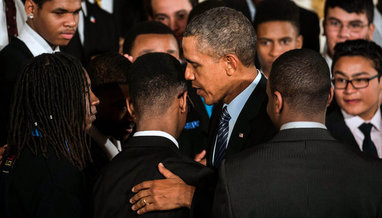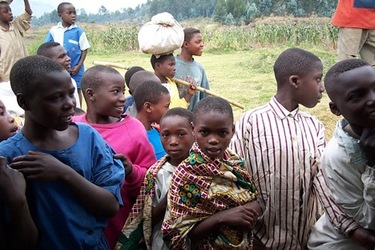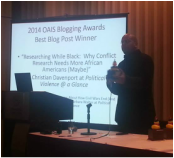
Different discussion though (I can feel my mom scowling). Today is a good day because of a photo - perhaps THE photo of his presidency as far as I am concerned. Actually, the article is ok as well. By the way, the picture is on page one, right in the middle of the page. This is one reason for getting actual hard copies and not the online version.
Look at the picture. He is surrounded by young black men (almost completely). He is partially embracing one as if to say, I got you brother. He is leaning in and having heard the man speak hundreds of times, you know he is saying something inspirational. The others look on and in this photo I am calmed and made a little hopeful (a bit, for a second). There just have not been (m)any photos like this over the course of the presidency.
Now, I'm not calmed or made hopeful by what the Prez actually said per se, which is something that should be discussed widely. Indeed, the caption for the article is kind of intriguing, noting that Obama speaks uncharacteristically about his missteps as a youth as if to suggest that all black men have missteps being the problems that they are. Reading between the lines you could think that if you follow what the Prez has to say (ummmmm growing up in Hawaii and going to Harvard), then things will all work out fine and you could become president. Ok.
Regardless, I am alright with this because there is now a photo that can be decontextualized and used to uplift individuals so that they can feel incorporated in some way. Yes, the context does not matter. The photo is now part of the public record. It will be used, downloaded, tweeted, reimaged, cropped and photo chopped thousands of times And, that is perfectly fine. People can do whatever they want to their images. I'm going to leave mine just like this.



 RSS Feed
RSS Feed
